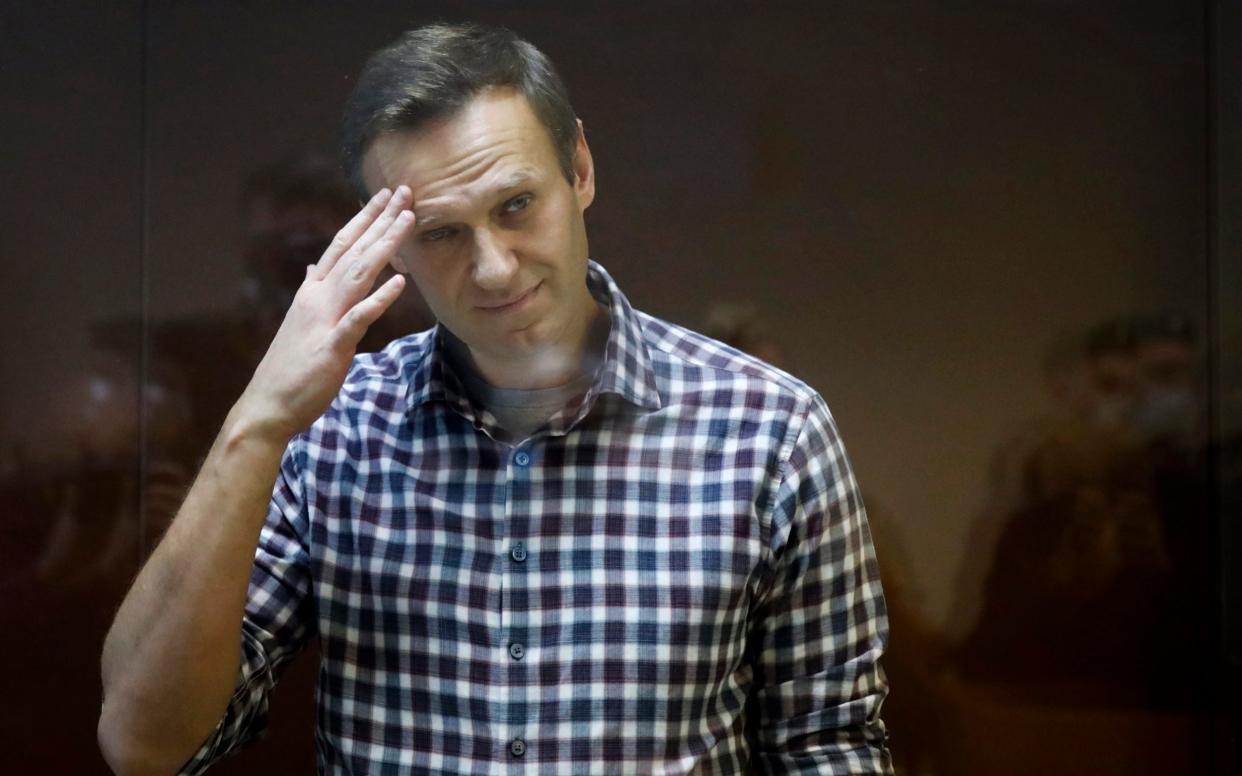Alexei Navalny goes on hunger strike to protest lack of medical help in Russian jail

- Oops!Something went wrong.Please try again later.
Alexei Navalny, the jailed Russian opposition leader, has said he’s going on hunger strike to protest the lack of medical assistance he is being given in a notorious Russian penal colony.
Mr Navalny, who was arrested in January upon his return to Russia, said in a letter addressed to the head of his prison colony on Wednesday that persistent refusals to let him see a civilian doctor or receive medication from his family leave him with no choice but to go on hunger strike.
“I demand that a doctor be allowed to see me and until that happens I will be on hunger strike,” he said in a hand-written letter published by his team on Wednesday.
The opposition politician said he had been seeking medical help “daily for the past three weeks” and asked for a doctor to examine him in prison, which is allowed under Russian law:
He added: “Yet, the law somehow doesn’t apply to me.”

Mr Navalny’s team revealed his deteriorating health last week, saying that they were scared for the life of the man who last summer survived a near-fatal poisoning. Mr Navalny claims the Kremlin authorised the attack, which it denies.
Mr Navalny said in Wednesday’s letter that severe pain in his back has spread to his right leg and that he is now losing sensation in his left leg.
The Kremlin’s most prominent critic joked about it.
“I mean, to hell with the right leg. I would have done with the left one somehow. But losing two legs at once is where I cross the line,” he wrote.
“It would be unfair: everyone has two legs and I have none.”
The 44-year-old opposition leader has been a thorn in the Kremlin’s side for years, spearheading nationwide anti-government protests and shedding light on official corruption.
Authorities had harassed him with constant criminal inquiries and brief arrests but it wasn’t until he returned in January from Germany where he had been convalescing from the nerve agent poisoning that a court locked him up. Several weeks later, he was sentenced to nearly three years in prison for failing to see his probation officer while recovering in Germany.
Mr Navalny previously complained about near-torturous conditions in the prison where guards wake him up every hour at night, ostensibly to make sure he has not escaped.
In a separate message released by his team, Mr Navalny said that he now understands why inmates resort to something as dangerous as a hunger strike:
“It’s very simple: You have no other way left to fight.” Mr Navalny said in the message he would be lying on his bunk, reading the Bible - the only book he has been able to borrow while in prison - until his demands are met.
Maria Pevchikh, a close associate of Mr Navalny, tweeted on Wednesday that the politician used to describe a hunger strike as a “radical political gesture that can be done only if you’re ready to go all the way.”
“Clearly that moment has come for him,” she said.

